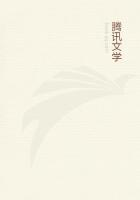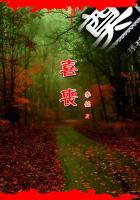The new-born child, on the contrary, does not show any traces of such impulsive acts. Still, we observe in the first days the earliest beginnings of ****** volitional acts of an impulsive character, as a result of the reflexes caused by sensations of hunger and by the sense-perceptions connected with appeasing it. These are to be seen in the evident quest after the sources of nourishment. With the obvious growth of attention come the volitional acts connected with impressions of sight and hearing: the child purposely, no longer merely in a reflex way, follows visual objects, and turns his head towards the noises that he hears. Much later come the movements of the outer muscles of the limbs and trunk. These, especially the muscles of the limbs, show from the first lively movements, generally repeated time and time again. These movements are accompanied by all possible feelings and emotions, and when the latter become differentiated, the movements begin gradually to exhibit certain differences characteristic for the quality of the emotions. The chief [p. 290] difference consists in the fact that rhythmical movement accompany pleasurable emotions, while arrhythmical and, as rule, violent movements result when the emotions are unpleasurable.
These expressive movements, which must be looked upon as reflexes attended by feelings, then, as soon as the attention begins to turn upon the surroundings, pass as occasion offers into ordinary voluntary expressive movements.
Thus, the child shows through the different accompanying symptoms that he not only feels pain, annoyance, anger, etc., but that the wishes to give expression to these emotions. The first movements, however, in which an antecedent motive is to be recognized beyond a doubt, are the graying movements which begin in the twelfth to the fourteenth week. Especially at first, the foot takes part in these movements as well as the hand. We have here also the first clear symptoms of sense-perception, as well as the first indications of the existence of a ****** volitional process made up of motive, decision, and act. Somewhat later intentional imitative movements are to be observed. Simple mimetic imitations, such as puckering the lips and frowning, come first, and then pantomimetic, such as doubling up the fist, beating time, etc. Very gradually, as a rule not until after the beginning of the second half of the first year, complex volitional acts develop from these ****** ones. The oscillation of decision, the voluntary suppression of an intended act or one already begun, commence to be clearly observable at this period.
Learning to walk, which usually begins in the last third of the first year, is an important factor in the development of voluntary acts in the proper sense of the term. Its importance is due to the fact that the going to certain particular places furnishes the occasion for the rise of a number of conflicting motives. The learning itself is to be regarded as [p. 291] a process in which the development of the will and the effect of inherited dispositions to certain particular combinations of movements are continually interacting upon each other. The first impulse for the movement comes from volitional motives; the purposive way in which it is carried out, however, is primarily an effect of the central mechanism of coordination, which in turn is rendered continually more and more purposive as a result of the individual's practice directed by his will.
8. The development of the child's ability to speak follows that of his other volitional acts. This, too, depends on the cooperation of inherited modifications in the central organ of the nervous system on one hand, and outside influences on the other. The most important outside influences in this case are those that come from the speech of those about the child.
In this respect the development of speech corresponds entirely to that of the other expressive movements, among which it is, from its general psycho-physical character, to be classed. The earliest articulations of the vocal organs appear as reflex phenomena, especially accompanying pleasurable feelings and emotions, as early as the second month. After that they increase in variety and exhibit more and more the tendency to repetition (for example, ba-ba-ba, da-da-da, etc.). These expressive sounds differ from those of many animals only in their greater and continually changing variety. They are produced on all possible occasions and without any intention of communicating anything, so that they are by no means to be classed as elements of speech.
Through the influence of those about the child these sounds generally become elements of speech after the beginning of the second year. This result is brought about chiefly by certain imitative movements. It comes, in the form of sound-sensations, from two sides. On the one hand, the child imitates adults, on the other, adults imitate the child. In fact, as a rule, it is the adults who [p. 292] begin the imitating; they repeat the involuntary articulations of the child and attach a particular meaning to them, as, for example, "pa-pa" for father, "ma-ma" for mother, etc. It is not until later, after the child has learned to use these, sounds in a particular sense though intentional immitation, that he repeats other words of the adults' language also, and even then he modifies them to fit the stock of sounds that he is able to articulate.















